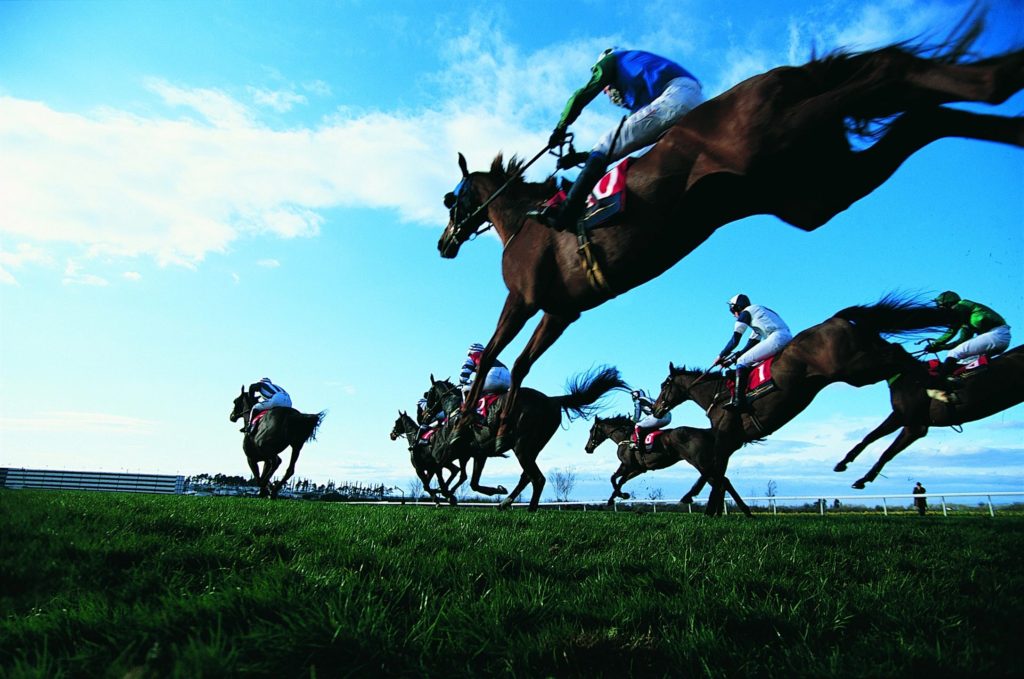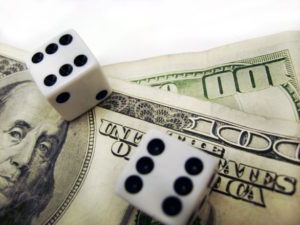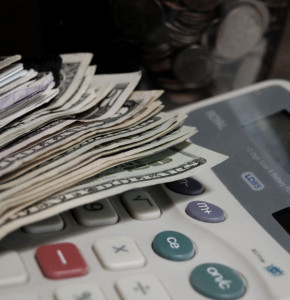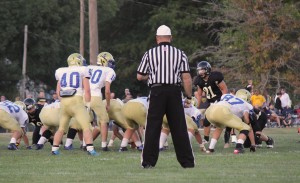
By Alexander S. Boros
So far, 2020 has felt like an eternity and yet we are just four months in. The spread of COVID-19 has turned the entire world upside down and has transformed the economy in a way we have never seen before. One of the more interesting twists of fate in the midst of this global crisis was the end of sports in America.[1] When COVID-19 struck, sports were in full swing: college basketball was entering its postseason, the NBA, MLS, and NHL were mid-season, and Major League Baseball was in the middle of Spring Training.[2] By March 12, however, state and national social distancing guidelines created “The day the sports world stopped.”[3] In the coming days, restaurants and bars would shut down and states across the country would shut down all non-essential businesses.[4]
Millions of Americans would be shut in their homes to flatten the curve but were left without some unifying outlet of entertainment. Online resources, available from the safety of our own homes, have become the only connection to the outside world. Internationally, online poker tournaments set records for participation and prize pools, though such gambling is virtually illegal in the United States.[5] Instead, American gamblers have increasingly wagered on sporting events as their chosen form of entertainment.[6] When sports shut down, however, that multimillion-dollar gambling industry was also removed from the equation. In North Carolina alone, sports gambling was expected to bring in $14 million to casinos and $1 million in tax revenues.[7] Throughout the country, newly developed and well-established sportsbooks alike began facing a question suddenly on the lips of many small businesses owners: How will we stay in business?[8]
It turns out, there is no way to shut down American ingenuity. In the beginning of April 2020, American sportsbooks FanDuel, DraftKings, and BetMGM each reached out to West Virginia’s Lottery for approval to accept bets in “political market[s].”[9] Specifically, DraftKings hoped to accept bets on four markets: (1) Winner – Presidential Election; (2) Winning Party Overall; (3) Over/Under seats for each Party – Senate Over/Under for each Party – House Over/Under number of States won; (4) Over/Under Electoral College Votes Obtained and Turnout percentage.[10] In these conversations, it was taken as a given that gambling on state and local elections was not allowed.[11] On April 7, the state lottery approved each of the markets.[12]
Betting on elections is “nothing new” internationally.[13] International gambling websites like InTrade and BetFair became popular in 2012, and the 2016 election brought in record numbers of bets and revenue.[14] Opening political markets in the United States is a massive opportunity for states as well.[15] Forecasts suggest that presidential election gambling would produce $1.1 million in new wagers and generating $150 thousand in new tax revenue for West Virginia alone.[16] Those same projections expected nearly double the wagers on the Presidential election than were placed on Super Bowl LIV.[17] That is because, although sports are hugely popular in the United States, they do not affect everyone.[18] American democracy, on the other hand, affects everyone in this country. Thus, political gambling is hugely popular with first time betters.[19] In Europe, 12 percent of all wagers placed on the 2016 election were new betters.[20] That number is nearly six times higher than the percentage of new betters across all other markets offered that year.[21]
Even though initial approval was given to West Virginia’s Sportsbooks, Mac Warner, West Virginia’s Secretary of State, quickly shut down the idea and revoked the approval.[22] That’s because, in West Virginia, it is “unlawful to bet or wager money or other thing of value on any election held in [the] state.”[23] It turns out that’s a common restriction across the fifty states.[24] But should it be?
While direct wagering on elections is illegal, predictive markets allowing “investing” in political outcomes have been operating within the United States since 1993.[25] Two of the largest in the country, PredictIt and the University of Iowa’s Electronic Markets, limit the amount of money that can be invested at any time, and all data from the markets is used for research purposes.[26] Although scholars are divided as to whether there is really a difference between these two markets, arguably the overall results are the same.[27] At the end of the day, these markets include placing money on candidates based on their odds with either losses or gains that are realized. Put simply, it is hard to see the distinction between the two forums. This discussion may be the result of “being so preoccupied with whether or not they could [without stopping] to think if they should.”[28] That may be a question for a different article. If Sportsbooks can develop the appropriate, anti-corruption protections to ensure that unfettered gambling does not run amuck on our elections, the country’s next great sport spectacle may well be America’s democracy.
[1] See Mike Vaccaro, The Day Coronavirus Sent the Sports World Into Darkness, N.Y. Post (Mar. 12, 2020, 6:38 PM), https://nypost.com/2020/03/12/the-day-coronavirus-sent-sports-into-hibernation-has-come/.
[2] Id.
[3] Id.
[4] See, e.g., Gabriella Borter, New York Governor Orders All Non-essential Businesses Closed, Says Everyone Must Stay Home, Reuters (Mar. 20, 2020, 11:51AM), https://www.reuters.com/article/us-health-coronavirus-usa-new-york/new-york-governor-orders-all-non-essential-businesses-closed-says-everyone-must-stay-home-idUSKBN2172JP.
[5] David Purdum, Online Poker Tourney Sets Record Amid Pandemic, ESPN (Mar. 24, 2020), https://www.espn.com/chalk/story/_/id/28948562/online-poker-tourney-sets-records-amid-pandemic (noting online poker is legal in only a handful of U.S. states).
[6] See Alexander Boros, North Carolina is All-in on Sports Betting, Wake Forest L. Rev.: Current Issues Blog (Aug. 27, 2020), https://www.wakeforestlawreview.com/2019/08/north-carolina-is-all-in-on-sports-betting/.
[7] See Andrew Westney, NC House Approves Cherokee Sports Betting Bill, Law360 (July 16, 2019), https://www.law360.com/articles/1177393/nc-house-approves-cherokee-sports-betting-bill (“The bill’s supporters expect sports betting to generate $14 million in annual revenue for the tribe and about $1 million a year for the state.”).
[8] David Purdum, Wynn Las Vegas Temporarily Closing Sportsbook Due to the Coronavirus, ESPN (Mar. 13, 2020), https://www.espn.com/chalk/story/_/id/28900242/wynn-las-vegas-temporarily-closing-sportsbook-due-coronavirus.
[9] Adam Candee, Presidential Election Betting Asks In West Virginia Approved In An Hour, Emails Show, Legal Sports Rep. (Apr. 14, 2020, 1:23PM), https://www.legalsportsreport.com/39947/presidential-election-betting-west-virginia-emails/; see also Emails Between WV Lottery and Sports Betting Companies Regarding Elections Betting, Legal Sports Rep. (Apr. 14, 2020), https://www.documentcloud.org/documents/6837062-Emails-between-WV-Lottery-and-Sports-Betting.html [hereinafter Lottery E-mails].
[10] Lottery E-mails, supra note 9, at 20; E-mail from Jacob List, DraftKings, to David Bradley, West Virginia Lottery (Apr. 7, 2020, 1:50 PM) (on file with author) [hereinafter List E-mail].
[11] Lottery E-mails, supra note at 9, at 20; List E-mail, supra note 10.
[12] Lottery E-mails, supra note 9at 25; E-mail from David Bradley, West Virginia Lottery, to Jacob List, DraftKings (Apr. 7, 2020, 4:58 PM) (on file with author) [hereinafter Bradley E-mail].
[13] Sarah Zhang, You Can Bet Real Money on the US Election. It’s for Research, Wired (Mar. 1 2016, 7:00AM), https://www.wired.com/2016/03/can-bet-real-money-us-election-uh-research/.
[14] Id.; see also Lottery E-mails, supra note 9, at 22 (“The biggest market in terms of volume matched in the history of the Exchange is the 2016 Next President market …”); E-mail from John Sheeran, PPB.Com, to David Bradley, West Virginia Lottery (Apr. 7, 2020, 2:10 PM) (on file with author) [hereinafter Sheeran E-mail].
[15] Lottery E-mails, supra note 9, at 18; E-mail from Erich Zimny, Vice President of Racing & Sports Operations, Hollywood Casino at Charles Town Races, to David Bradley, West Virginia Lottery (Apr. 6, 2020, 3:56 PM) (on file with author) [hereinafter Zimny E-Mail].
[16] Lottery E-mails, supra note 9, at 18; Zimny E-mail, supra note 15.
[17] Lottery E-mails, supra note 9, at 18; Zimny E-mail, supra note 15.
[18] Lottery E-mails, supra note 9,at 24; Sheeran E-mail, supra note 14.
[19] Lottery E-mails, supra note 9,at 24; Sheeran E-mail, supra note 14.
[20] Lottery E-mails, supra note 9,at 24; Sheeran E-mail, supra note 14.
[21] Lottery E-mails, supra note 9,at 24; Sheeran E-mail, supra note 14.
[22] Press Release, Andrew “Mac” Warner, Secretary of State Warner Releases Statement on Wagering on Elections in West Virginia (Apr. 8, 2020), https://sos.wv.gov/news/Pages/04-08-2020-A.aspx.
[23] W. Va. Code § 3-9-22 (2019); see Press Release, supra note 22.
[24] Tamar Lapin, Political Betting Was Legal in West Virginia – For About an Hour, N.Y. Post (Apr. 8, 2020, 9:27 PM), https://nypost.com/2020/04/08/political-betting-was-legal-in-west-virginia-for-about-an-hour/.
[25] See Zeke Faux, PredictIt Owns the Market for 2020 Presidential Election Betting, BloomsBerg BusinessWeek (Aug. 1, 2019, 9:10 AM), https://www.bloomberg.com/news/articles/2019-08-01/predictit-owns-the-market-for-2020-presidential-election-betting; Theo Francis, Wanna Bet? The Market Has a View on the 2020 Election, Wall St. J. (Jan. 10, 2020, 1:11 PM), https://www.wsj.com/articles/wanna-bet-the-market-has-a-view-on-the-2020-election-11578679896.
[26] Research Opportunities, PredictIt, https://www.predictit.org/research (last visited Apr. 20, 2020); About the IEM, U. Iowa, https://iemweb.biz.uiowa.edu/about/?mod=djem_election2020&mod=article_inline (last visited Apr. 20, 2020).
[27] Alexandra Lee Newman, Manipulation in Political Prediction Markets, 3 J. Bus. Entrepreneurship & L. 205, 208 n.25 (2010) (“Prediction market scholars disagree about whether the CFTC legally can regulate public prediction markets generally under the CEA, or whether state gambling laws should regulate these markets.”) (citing to disagreement in literature regarding the differences and likenesses of predictive markets and gambling).
[28] Jurassic Park (Universal Pictures 1993).



